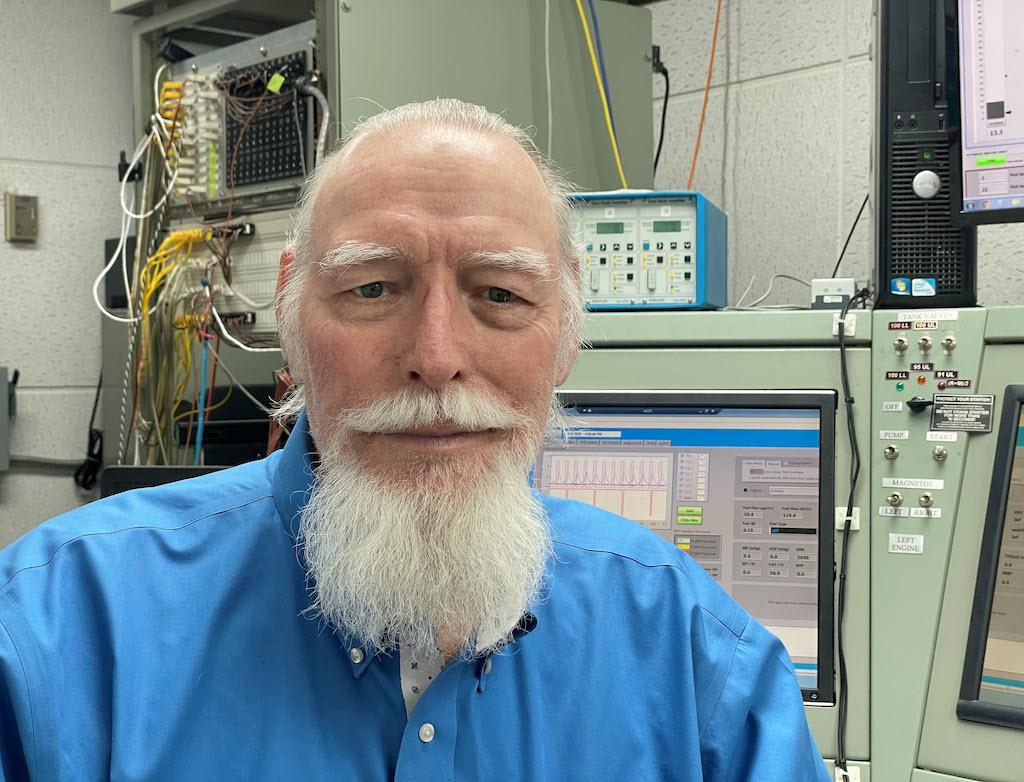
GAMI Co-Founder George Braly
George Braly is co-founder of General Aviation Modifications, Inc. (GAMI), of Ada, Oklahoma, which holds a supplementary type certificate for G100UL, the first approved unleaded, 100-octane avgas. BCA spoke with Braly at the recent Sun ‘n Fun Aerospace Expo in Lakeland, Florida.
You’ve basically had three phases in developing G100UL: Doing the chemistry, winning STS approval and now bringing it to market. Which is the most challenging?
The initial figuring out the chemistry took us less than 15 months. It took basically an additional 11 years to get the FAA approval. It should have taken three or four. There were a number of people inside the FAA who did not want this to happen, because it was being done with a proprietary company specification. And so, they did everything that was possible to slow it down and block it. Thank God, we got a new AIR-1 in June of last year. Lirio Liu [executive director of the FAA Aircraft Certification Service] gets enormous credit for this.
Engine and airframe manufacturers want to be sure that 100UL will not cause damage before they agree to honor warranty claims from aircraft owners who use the new fuel. How are you doing on that front?
The only thing the OEMs can do is to try and tell the owners, “If you dare use that fuel, we’re going to void your warranties.” Well, there's only 2-3% of the aircraft covered under warranty anyway. So, it’s an empty threat. But to her credit, Jennifer Miller [senior director of engineering at] of Lycoming was doing a seminar [March 28]. She said: “We’re not going to automatically deny the warranty of somebody who uses this fuel.”
The thing is, it would be catastrophic and self-destructive for the companies to get in the way of the appointment of this fuel on their large population of airplanes in California, which is where the first fuel is going.
How are you doing with ramping up production of G100UL with refiners and distributors.
We have a very large company, an international company, in Houston, that has agreed to produce the fuel. They produce aviation jet fuel right now and they [can] produce 100 Low Lead (100LL). They know how to do this. They have the technical capability and the laboratory equipment to do it. They have the ability to make 500,000-gal. batches or 3 or 4 million-gal. batches. And they have agreed to produce it. They have given us a price schedule. We have shared that with the four major existing distributors, AvFuel, World Fuel, Titan and Epic. We gave them the pricing, invited them to send rail cars to Houston, and the fuel would be loaded on their rail cars at that price free on board. They sell 80 or 90% of the 100LL to the FBOs in the airports.
There are already unleaded 94-octane substitutes for engines. Others are working on additives that will replace tetraethyl lead in 100-octane avgas. How much competition are you expecting in the higher-octane market, maybe not today but over the next three years?
Basically, of the three candidate fuels that are announced, two of them are in PAFI [FAA Piston Engine Aviation Fuels Initiative], which is the Phillips 66-Afton Chemical effort and the Lyondell-BP Racing effort. Those two fuels are part of the EAGLE (Eliminate Aviation Gasoline Lead Emissions) program. And then Swift Fuels has another program that’s kind of one foot in and one foot out of EAGLE. They’re going to do an STC (supplemental type certification), but they’re also going to get an ASTM specification. The delta between the G100UL and the Swift yield is about 11% [in terms of energy per gallon]. I know this looking at their fuel chemistry because these are laws of physics things. When you buy a gallon of gasoline, you’re buying so many thousands of BTUs per gallon. It’s the energy content. Well, the energy content of [Swift Fuel] is 7% below 100LL and the energy content of [G100UL] is 4% above 100LL on a volumetric basis.
Last year the General Aviation Manufacturers Association and some of the companies that represent piston aircraft manufacturers seemed to be leaning toward EAGLE. Has the relationship changed now that you have the STC that applies to every aircraft and engine that uses avgas?
[On March 21] they had an EAGLE executive committee meeting with all the traditional EAGLE people. They won’t let us participate in any way. And the next day they had a follow-up meeting that was open to the public. And one of the slides announced that the Phillips fuel and the LyondellBasell fuels … each of those fuels was undergoing reformulation for deposit control. So, basically right now the EAGLE has no wings. There frankly is not a visible alternative to any knowledgeable fuel chemists [that] has a viable path to success.





